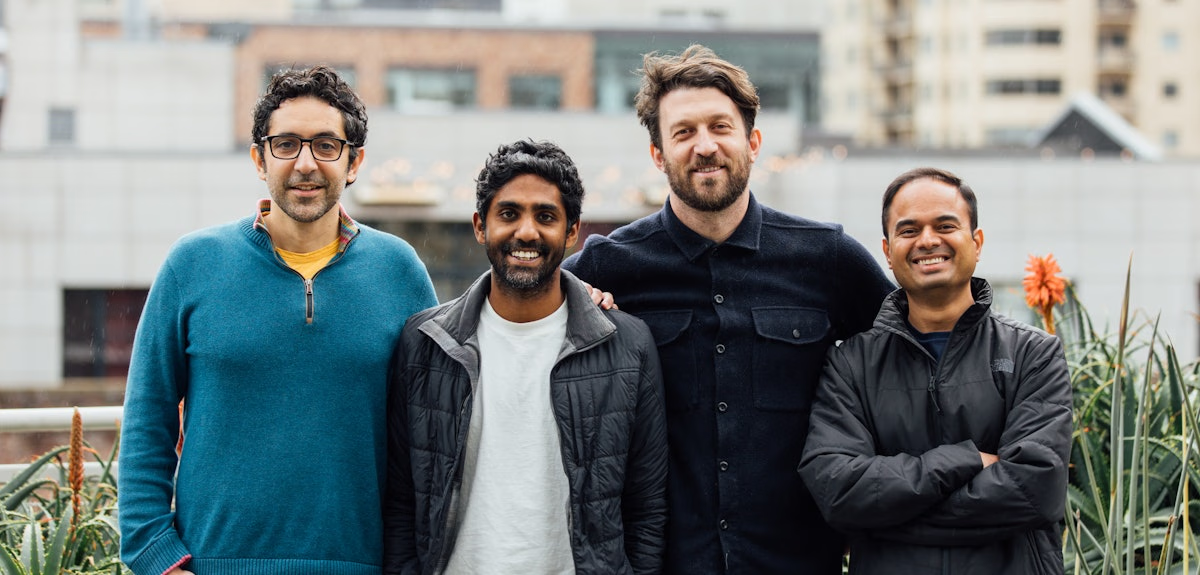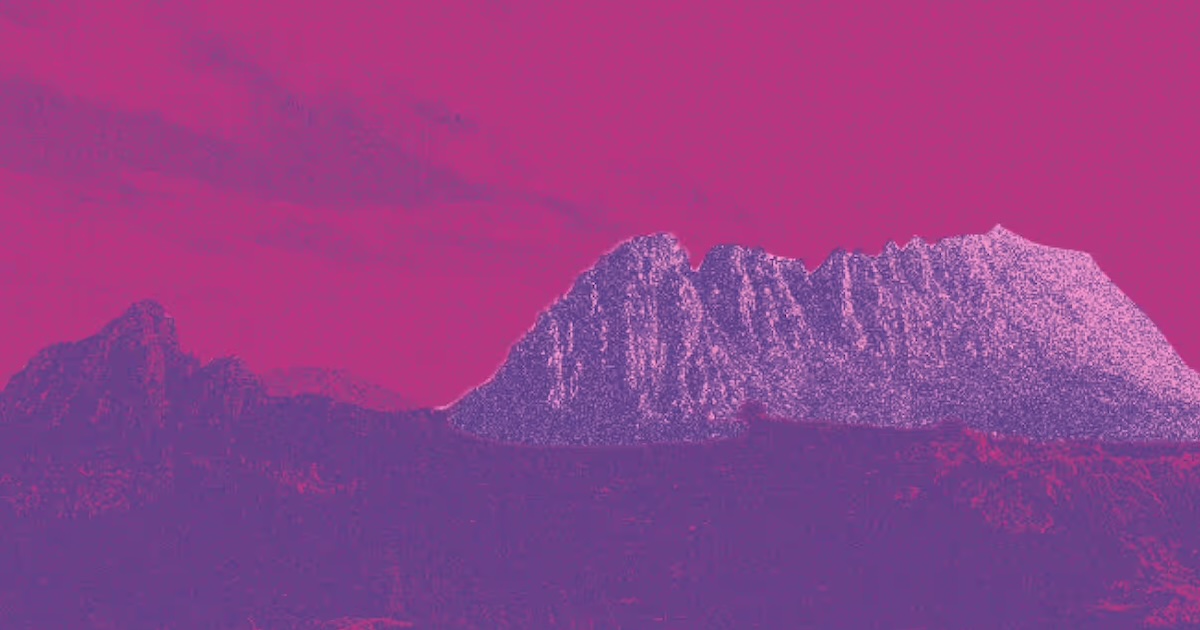
Blackbird Principal AMA
Thank you for your thoughtful questions and for investing your time to learn more about Blackbird. We weren’t able to make it through the avalanche of excellent questions, so we’ve answered them here for you.
Thank you for your thoughtful questions and investing your time to learn more about Blackbird. We weren’t able to make it through the avalanche of excellent questions, so we’ve answered them here for you.
1. Aside from capital, what do you give startups?
Blackbird was founded on the principle of “Founders helping Founders.” Our first fund was raised from founders - the true believers in the Australian startup ecosystem. Our investors not only brought capital but their operating expertise and networks to help the next generation succeed. We are a community-driven VC.
2. Aside from the community, why is Blackbird different?
I love our belief of “investing in the possibility over the probability.” It’s a liberating belief and allows us to take a chance on weird, wonderful and creative companies, like autonomous vehicle startup Zoox and synthetic biology companies CCLabs and Vow. I love backing the future that we think is worth giving a shot of playing out. Not all of them will succeed. Some will fail spectacularly, but when something improbable goes on to succeed, that’s where the magic is. My heart beats faster thinking about the possibilities.
3. What is a river of inquiry?
Rivers of inquiry are big fundamental shifts in the world and the ideas that emerge to adapt to and address these changes. Take a look at Sam’s post on the Third Agricultural Revolution and her belief in the future of food.
Now is the best time to form your own rivers of inquiry. COVID, the recession, climate change are all massive accelerants for new fundamental shifts in the world in areas. The playbook is being re-written.
4. What does a typical week look like as a Blackbird Principal? How do you split your time?
There is no typical week! Everyone at Blackbird has full control over their own time to do what they need to do. I structure my week to maximise for "making great investments" which involves building a deal flow pipeline, exercising my investment decision and transaction muscles and improving our investment process.
Two examples of how I "chunk" my work into projects.
"Less Due Diligence" - Blackbird constantly thinks about how we can improve our investment process. It's easy to add more questions to an investment decision checklist. It's harder to refine and understand what the most important questions to ask are. Based on Warren Buffet's 20 slot principle, we culled 40+ questions we asked ourselves to 20 and overhauled our existing questions, so we're making decisions based on our principles rather than ticking boxes. Some new questions I love: "Is the vision in high definition and vivid colour?" "What do the founders believe that their competitors do not?" "Are these founders magnets for talent?"
"Giants" - As the world entered lockdown and events cancelled, we saw an opportunity to tap into world-class founders and operators via video conferencing to bridge the insights gap between ANZ and the rest of the world. Over three weeks, we whipped up an online conference for early-stage startups to learn from the best people around the world on practical topics such as go-to-market and building resilience.
5. How does Blackbird approach portfolio construction? What’s the difference between all the funds?
We have two types of funds - early-stage and follow-on. Investments into a new company are made from the early-stage fund. We build our relationship with the founders and ownership of the company over time. As we gain higher conviction in our portfolio companies, we love to invest more and more - these investments are made from the follow-on fund. As an example, we wrote our first $250K check into Canva from our first early-stage fund in 2012, and have continued to invest over $100M into Canva via our follow-on funds.
6. What does the investment process look like?
7. What were the lessons learned from raising a new fund and opening an office?
We always tell founders - fundraising always takes longer than you’d expect! The same is true for us. Starting something new and uncommon requires patience and conviction. I’ve learnt that the best opportunities are always the ones you have to be comfortable with being misunderstood. Not everyone will understand why you’re doing what you’re doing yet, but if they did, there would no longer be an opportunity.
8. What do you find the most rewarding about the role? What is the most challenging?
The most rewarding feeling is being a part of the future you hope to exist. The most challenging is there is no roadmap to being a wildly successful investor. There’s an element of luck and output doesn’t always equal input. The best remedy is to enjoy the process of investing and the journey with the Blackbird team and our founders.
9. How do you continue to back companies you love while giving liquidity to investors?
We have a saying at Blackbird - “no exits!” What we mean by that is, we want to continue to be investors in the companies we love, no matter how big it becomes. VC funds typically have a 10-year lifespan, and traditionally we’ve seen companies get acquired or IPO in order to find buyers for the shares of our portfolio companies and return the money to the investors of Blackbird. M&As and IPOs can be disruptive for companies that aren’t ready to change their structure fundamentally. The third option Blackbird has leaned into is the secondary markets, typically made up of institutional investors who want to become owners of fast-growing companies that they can’t access in the public market. We’ve created a new fund structure to manage the shares for our new investors’ behalf, which means we were able to return capital back to previous investors, form relationships with new ones and most importantly, continue our relationship with the underlying portfolio companies.
10. How does the distributed Blackbird team work together and how much flexibility do you all have?
One team, one dream! We’re based across multiple cities, across two countries and lean heavily on tools such as Slack, Zoom, Notion, Google Suite and Process St. Although Sam and I are in NZ, we still lead investments in Australian companies and vice versa for Australian based partners. We all sit in on every company pitch and make investment decisions as one team.
We work to our own schedules and are trusted completely to manage our own time and priorities in life. We all take whatever time we need to make sure our families are OK.
As Didier Elzinga (Culture Amp CEO) says, “We borrow our time at work from people much more valuable than the work itself.”
Watch Blackbird Principal AMA video.
_
Other FAQs
Can this role be based anywhere in Australia, New Zealand and would you sponsor a visa for those outside these locations?
If they are the best candidate, yes.
The role requirement specifies someone who has experience investing in start-ups. Does being a founder meet this requirement?
Yes, especially if you’ve been through funding rounds or acquisitions with that startup, and even more so if you’ve used that experience to coach other founders.
What sort of modelling is involved in the role?
Modelling is just a numerical understanding of how the business works, what levers are being pulled. It helps inform your investment decision, but it isn’t an output in itself. You should be able to understand and create a startup’s operating model, unit economics, and cap table.
When is the preferred start date?
As soon as the best candidate can start!
Is there an expectation that the successful candidate will remove themselves from other projects?
Expectation is to be full time at Blackbird.
For someone who isn’t closely connected to startups, what are some things you'd like to see them do for an opening in 12-18 months?
Get closely connected to startups. Join one, help one, invest in one, build founder empathy. Understand what it’s like to be on the other side of the table. Do the Startmate Fellowship program.
How open are you to hiring a person who may be considered too young for a position like this?
Very open. We use a portfolio company, Applied, to run our hiring process and we hire without seeing any demographic info about applicants (age, gender, nationality). I got hired through Applied!
What percentage of ownership do we want in early-stage investments? How do we decide how much to invest? What’s the minimum and maximum for pre-seed funding?
20% ownership is an awesome place to start. No min/max for pre-seed rounds. Round size proportional to what the founders plan on doing in the next two years.
What incremental skills, or elements of cognitive diversity, would you be excited for the new Principal to add to the team?
Someone who has developed a new river of inquiry. Someone who can teach us something and can challenge our thinking. Background matters less than outlook. We want someone that can bring their own authentic perspective.
How do Startmate and Blackbird relate to each other?
Startmate is a subsidiary of Blackbird, and they’re both founded by Niki Scevak, General Partner at Blackbird. The Startmate team works very closely with Blackbird!
What does Blackbird look for in a founder? What are the red flags?
Ambition to be the best in the world, not just our region. High clarity of thought. High velocity of growth. Magnets for talent. I personally get excited by creative founders with high clarity and conviction. Red flags = opposite of these!
Who does the Principal report to?
Your manager will be Blackbird Partner Nick Crocker, but more importantly, you’ll build strong, even relationships with everyone at Blackbird, especially the investment team.
Who has the left Blackbird in the last eight years, and why did they leave? E.g. Bill
Bill was at Blackbird from day one as a part-time Venture Partner, and was instrumental in the success of Fund One. When the opportunity arose for him to found Main Sequence Ventures, it was too good to pass up and we remain close friends and allies, and are thrilled for the success Bill and the MSV team are having.
How do you balance being thesis driven via the river of inquiry projects vs. being opportunistic?
Not mutually exclusive. Going down a river increases your understanding of an area and allows you to spot good opportunities as they come up. In terms of prioritising time, everyone does this differently, but I’ve taken Nick’s advice of organising external meetings on certain days (Tuesdays and Thursday for me) and deep workdays (Wednesday).
I noticed there were analyst roles within your organisation - how does this tie to the Principal role? Can you walk-through the progression structure?
We have portfolio intelligence analysts (PIAs) who work closely with the partners and principals with the investment process and also deep dive into an existing portfolio company to help make follow-on investment decisions (I started off as a PIA). Spending time with portfolio companies and analysing the many years worth of data helped me build my own investment thesis. I also jumped on opportunities such as the secondary sale of a portion of our first fund and launching NZ fund, which was an incredible foundation for becoming a Principal.



.jpg)








